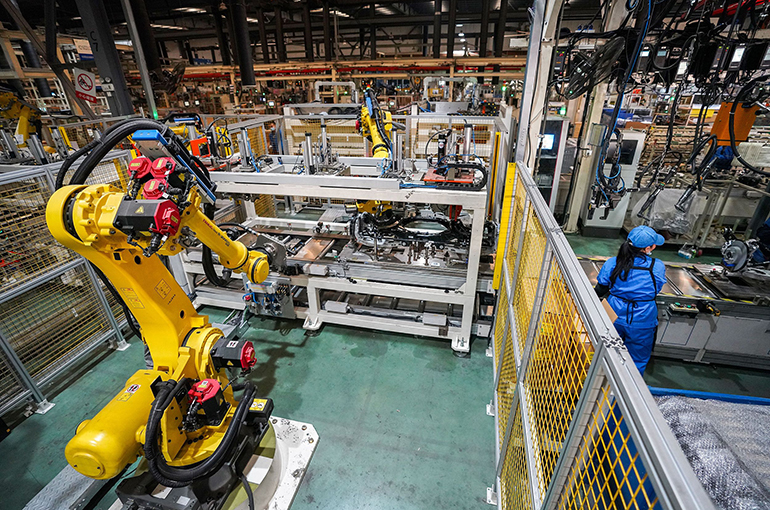 China’s Factory Activity Edges Up for Second Straight Month in June as US Trade Tensions Thaw
China’s Factory Activity Edges Up for Second Straight Month in June as US Trade Tensions Thaw(Yicai) June 30 -- Activity in China’s manufacturing sector showed a modest improvement for the second month running in June, buoyed by easing trade frictions with the United States, while remaining in contraction territory for the third month in a row, according to the latest official data.
The manufacturing purchasing managers’ index, a gauge of industrial profitability, stood at 49.7 for this month, up from 49.5 in May, according to figures released by the National Bureau of Statistics today. A reading below 50 indicates contraction.
The PMI fell into contraction territory in April amid escalating China-US trade frictions, sliding to 49 from 50.5 the month before.
Since then, China and the US have held trade talks. Following meetings in London on June 9 and 10 aimed at implementing the outcome of negotiations in Geneva in May, they agreed to cancel the 91 percent tariffs imposed on each other’s goods since April 8 and pause the implementation of 24 percent tariffs for 90 days, leaving only the 10 percent reciprocal duties in place.
As a result of the tariff rollback and pause, domestic demand is starting to bounce back in China. The NBS sub-index for new orders edged up to 50.2 in June from 49.8 in May, turning positive for the first time in two months. New export orders stood at 47.7, up from 47.5.
Stronger demand has helped fuel an expansion in factory activity. The production sub-index rose to 51 from 50.7, while that for raw material purchases climbing to 50.2 from 47.6.
In the second half, China will continue to implement a series of policies introduced earlier and, if needed, will roll out more measures to help boost domestic demand, said Wen Tao, an expert at the China Logistics Information Center. As long as there are no major external shocks, China’s manufacturing sector should maintain steady growth throughout the rest of the year, he added.
The non-manufacturing PMI, which includes the construction industry and the services sector, advanced to 50.5 in June from 50.3 in the prior month. The construction PMI jumped to 52.8 from 51, while the services PMI dipped to 50.1 from 50.2.
The composite PMI, which includes both the manufacturing and non-manufacturing sectors, advanced to 50.7 from 50.4.
Editor: Kim Taylor